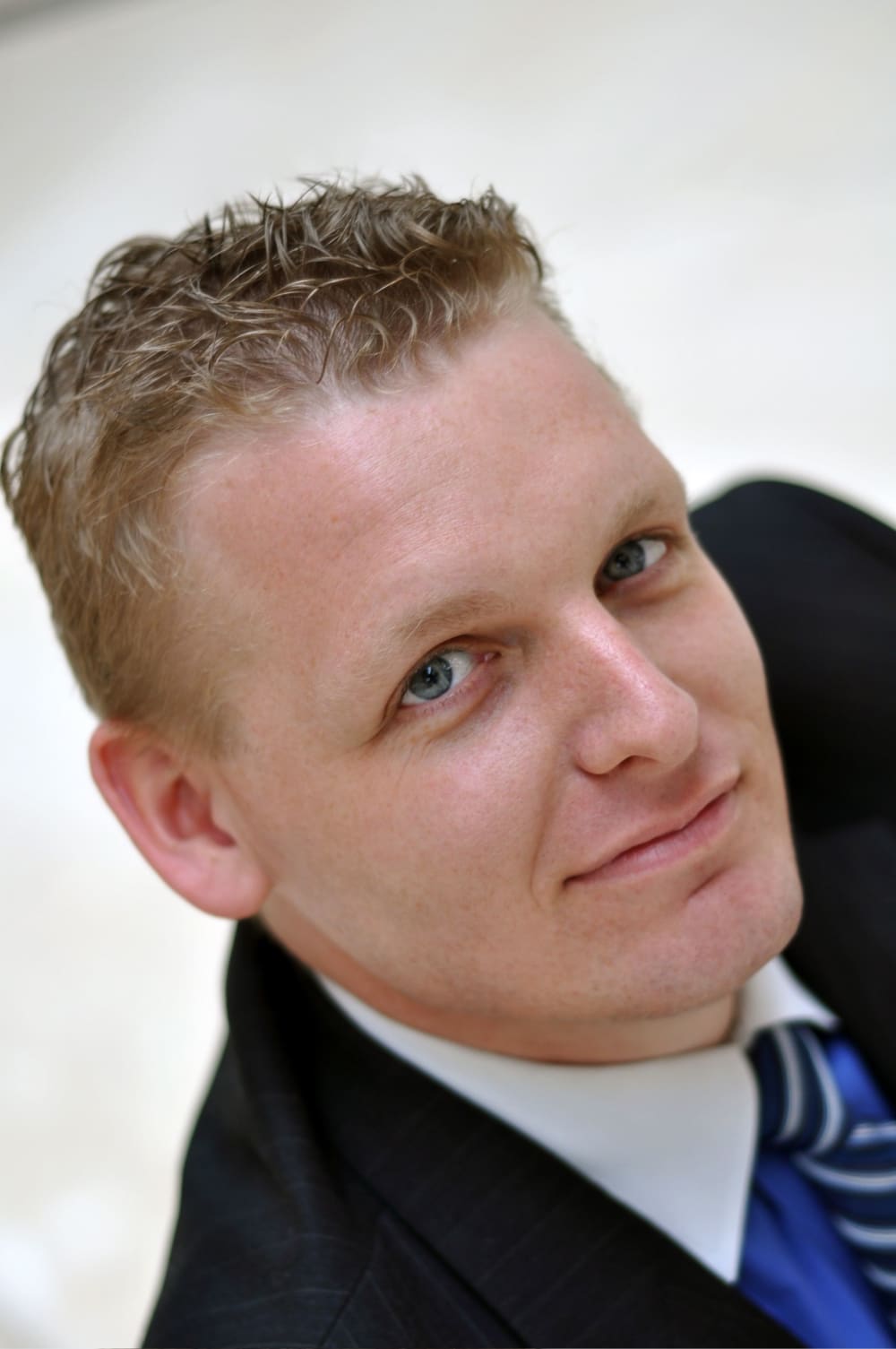Voices of TEDxSMU
TEDxSMU speaker Jeremy Gregg on why there is more talent in prison than businessschool
 Jeremy Gregg started volunteering at the Prison Entrepreneurship Program in2008.Photo courtesy of Jeremy Gregg
Jeremy Gregg started volunteering at the Prison Entrepreneurship Program in2008.Photo courtesy of Jeremy Gregg The Prison Entrepreneurship Program has an extensive application process.Photo courtesy of Prison Entrepreneurship Program
The Prison Entrepreneurship Program has an extensive application process.Photo courtesy of Prison Entrepreneurship Program The Prison Entrepreneurship Program has a 100 percent job placement rate forgraduates.Photo courtesy of Prison Entrepreneurship Program
The Prison Entrepreneurship Program has a 100 percent job placement rate forgraduates.Photo courtesy of Prison Entrepreneurship Program Jeremey Gregg hopes to harness the entrepreneurial spirit of inmates forlegitimate businesses.Photo courtesy of Prison Entrepreneurship Program
Jeremey Gregg hopes to harness the entrepreneurial spirit of inmates forlegitimate businesses.Photo courtesy of Prison Entrepreneurship Program
When Jeremy Gregg starts talking about prisons, people listen. During an interview with CultureMap about his December 1 TEDxSMU gig, a passerby interjected his support.
“I’m always amazed at how often that happens,” he says. “I’ve worked for six different nonprofits, and I’ve never had as many people come up to me as I do when I’m talking about prisons.”
Gregg is the chief development officer of the Prison Entrepreneurship Program, which educates and trains about 300 male inmates each year. He won the open audition spot for this year's TEDxSMU conference.
“Many people in jail are great entrepreneurs; they just had an illegal product,” Gregg explains. “We need to harness their skills for legal businesses.”
CultureMap: How did you first become interested in prisons?
Jeremy Gregg: While working at City Square, I became very close to a man named Joseph with a felony record. I did everything a social worker will tell you not to do. I gave him money. I got him a job by vouching for him personally. Long story short, nothing worked. He continued to steal and sell drugs and even faked his own death to try to manipulate me out of more money.
“Many people in jail are great entrepreneurs; they just had an illegal product,” Jeremy Gregg says.
I had to dismiss him from my life. I went on a search for what do you do with a man like Joseph? In my search to learn how to help people, I found out the Prison Entrepreneurship Program.
CM: Of all the problems in the world to focus on, why prison?
JG: Because it’s an enormous problem that’s growing every year. There are 2.3 million Americans in prison now. It’s taking up a huge percentage of state budgets across the country.
Ninety percent of people who return to prison are unemployed. It’s a very simple idea: Lack of a job leads people to go back to prison. One thing our country needs right now is jobs. But the last person anyone wants to help is an adult male offender.
CM: How much time do you spend in prison each month?
JG: Not enough. Our prison is the Cleveland Correctional Center outside of Houston. I go a couple times a month.
CM: How do you select inmates for the Prison Entrepreneurship Program?
JG: There are 10,000 men in Texas are eligible for our program. It’s a 20-page, essay-based application. We get 2,000 to 3,000 applications a year. From those we select a portion to take our version of the SAT.
“We are technically more competitive than Harvard,” Gregg says of the Prison Entrepreneurship Program.
We interview everyone who scores above a 70. In the end, we transfer about 100 people to the Cleveland unit. We are technically more competitive than Harvard.
All of our graduates find employment after prison. You’re more likely to have a job coming out of PEP than SMU.
CM: Have you ever been arrested?
JG: I never got caught. I had a very privileged life in and out of Highland Park. Still, there is a very thin line that separates me from my brothers in prison. I’ve made bad decisions too, but I had a safety net.
CM: What is the biggest misconception about incarceration?
JG: That the people in prison are totally different than us and they deserve everything they’ve gotten. I have seen more talent in prisons than I ever saw at SMU. This is hungry talent. They have no other skills to fall back on. It's start this business or end up back in prison.
The average prison sentence is 36 months. In that time, we could equip them to become a more effective, contributing citizen. But instead we make them a worse person.
You would never suspect that in America we have a place as bad as our prisons. You are under state control and you have to worry about being murdered? About being raped?
CM: What is your hope for the future of prisons?
“If prison isn’t the place we can reform people, then there is no other place,” Gregg says.
JG: I hope they become platforms of opportunity rather than just places of imprisonment. I know that sounds a little cheesy, but if that’s not the place we can reform people, then there is no other place.
The state of Texas would let us double our capacity in Cleveland unit. We just need the funds. We believe our program is fully scalable.
CM: What’s the best advice you’ve ever received?
JG: The main characteristic that separates those who struggle from those who succeed is gratitude. If we have gratitude in our heart, we look at the world differently.
CM: What’s the hardest part about working in prisons?
JG: Who wants to stand up in public and say ‘I’m a champion for the adult male prisoner’? I’m still looking for our celebrity spokesperson. It’s hard to change perceptions of prisoners. We don’t like the fact that a lot of people in prison look like us and talk like us. We’d rather think of them as savage animals that deserve the brutality they go through.
CM: What’s the most rewarding part of working in prisons?
JG: The first time I went to prison, I fell in love. Out of 800 graduates, at least 100 have started their own businesses. One guy is making $1.5 million in sales. He wrote the business plan in prison.
All we think about is “lock ‘em up and throw away the key.” But the vast majority of people will get out of prison. Then what will we do with them? I believe this is a solvable problem. Poverty is always going to be with us. Mass incarceration doesn’t have to be.
